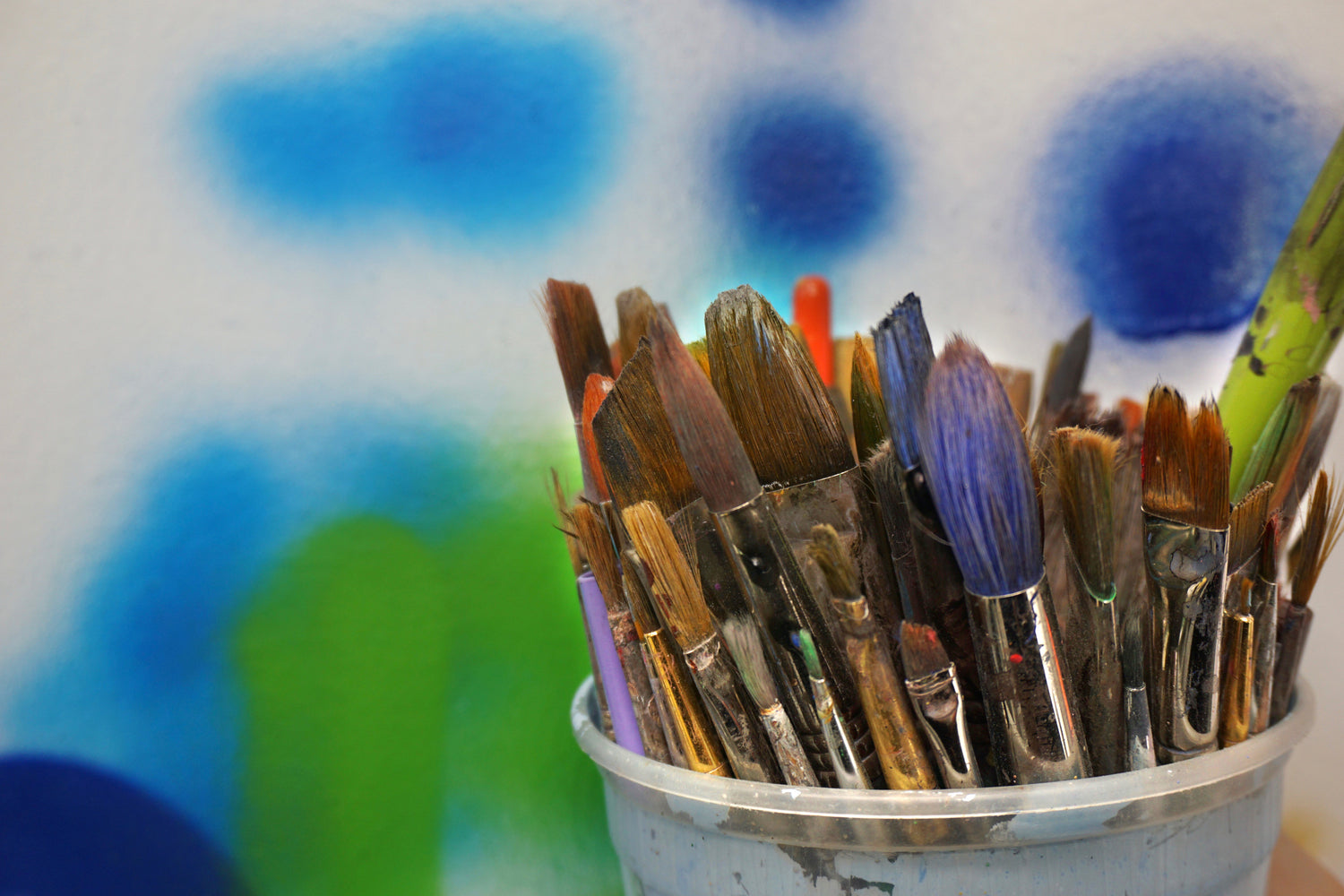How Do I Start With Getting Help For My Mental Health?
It is important to know how to get help, what kind of help is available, and how it can be accessible to you. There are many different approaches to keeping a healthy mind, and you are not limited to one form of therapy or medication as your only solution. Each brain is unique, so it is important to find what works best for you. Traditional and non-traditional therapies is a term used typically as a way of differentiating eastern and western medicine approaches here in the United States. Depending on where you are located in the world, traditional therapies can look different to you. Below we outline different types of therapies, and the positive effects they can have for our mental health.
Healing from the root causes of illness and working to manage symptoms to live a more healthy lifestyle is the goal of many therapies.
Traditional Treatment
Below is traditional forms of therapy here in the U.S.
Disclaimer: The information provided is for educational purposes only and is not intended as medical advice. For personalized advice and treatment, please consult a licensed mental health professional.
-
Talk Therapy
Free DBT WorkbookTalk therapy- typically a one on one session, focuses on thoughts and feelings to identify behaviors, make changes, and work through trauma.
- Incorporating CBT(cognitive behavioral therapy) or DBT (dialectical behavioral therapy) skills is a popular technique used throughout talk therapy. CBT and DBT coping skills have become widely successful and popular, and some workbooks can be found online for free.
- Some therapists are also certified to do EMDR (Eye Movement Desensitization and Reprocessing) therapy, a psychotherapy technique that helps people heal from trauma and other distressing life experiences.
- Talk therapy can be expensive, but know different therapists and offices do offer financial scholarships to patients and grants for treatment. Please call The National Alliance on Mental Illness (NAMI) helpline 1-800-950-6264 to find out information and resources in your area, if you are interested in this form of therapy.
-
Medication
Becoming medicated can be live changing for those suffering from a mental illness. Medication typically focuses on treating the symptoms and not the root of the issues, so regularly meeting with a therapist in addition to a psychiatrist for medication management is common.
- Treatment can be expensive, having insurance can help a lot. If you do not have insurance, consider applying for state insurance. Some places do have scholarships as well for patients for psychiatric care and therapy. The National Alliance on Mental Illness (NAMI) helpline 1-800-950-6264 offers information and resources in your area for psychiatric care. There are online resources like Goodrx, Better Help, and Amazon pharmacy, that are working to make prescription costs lower and access to therapy wider.
- Medications affect everyone differently, so it is important to meet with a trusted provider to find what is right for you and what condition is being treated.
-
Inpatient care
You can voluntarily admit yourself to the hospital if you are undergoing a mental health crisis. You can also be involuntarilary admitted by law if it is believed you are at risk to yourself. Treatment programs vary at each facility. Explore options in your area if you ever feel like you need to be hospitalized. 3 days is the minimum stay in most inpatient facilities, as well as being released with a safety plan. Stays can vary from days, to weeks, to months.
- Residential psychiatric hospitals, and treatment at inpatient care will focus more intensively through groups and one on one sessions .
- Inpatient treatment can be expensive, some state insurances may cover care, there should also be financial assistance options through the facility.
- If you have experienced medical neglect throughout an inpatient stay, please contact your state's department of safety. You are not alone.

Art Therapy
Art therapy can help develop a greater sense of self-awareness through creative expression. It teaches coping mechanisms that can help lower stress levels or reduce feelings of depression or anxiety.

Support Groups
Support groups can create a safe space where people feel comfortable sharing their experiences and feelings with others who have similar circumstances. This can help people feel less alone, isolated, or judged. There are many types of groups available focusing on a range of mental health areas from substance abuse, depression, anxiety, PTSD, bipolar, BPD, and more. Depending on your area and circumstances, Finding support groups can be challenging. There are a wide variety of support groups available, online and in person. There are support groups for all ages, and exploring online or calling your county can be a fast way to get connected to local resources.
Alternative Therapies
Alternative medicine emphasizes the mind-body connection. These therapies aim to provide natural relief from various health issues. Examples of alternative therapies are chiropractic care, acupuncture, Ayurveda, and herbalism. These therapies can often compliment traditional medical treatments as well.
-
Music Therapy
Music frequencies can be therapeutic because they have the ability to affect the brain and nervous system, and promote energy flow throughout the body.
- Low-frequency sounds: Can slow the heart rate, lower blood pressure, and ease muscle tension
- High-frequency sounds: Can stimulate dopamine synthesis, suppress the sympathetic nervous system, and stimulate the parasympathetic nervous system, which can reduce stress
- Binaural beats: In the theta (4–8 Hz) range, these beats can help with REM sleep, anxiety, relaxation, meditation, and creativity. In the alpha (8–13 Hz) range, they can promote relaxation, positivity, and reduce anxiety.
- 432 Hz is the frequency of the Earth.
-
Holistic Healing
Holistic healing is a type of healthcare that combines traditional medicine and alternative therapies to treat the whole person; including their body, mind, spirit, and emotions. The idea is that each aspect of a person is connected, and achieving balance among all areas can lead to optimal health and well-being. Holistic healing can also help people gain a greater understanding of themselves and increase self-esteem. Examples of a hollistic approach are:
- Seeing a Holistic Doctor instead of traditional
- Using diet and exercise along with medications and alternative therapies like acupuncture to maintain overall well-being.
-
Herbalism
Herbalism is a holistic approach to health and healing that can benefit mental health by addressing the underlying causes of imbalances, such as stress, poor diet, and hormonal imbalances. Herbal remedies can also promote relaxation, stress relief, and emotional balance. Some herbs that are commonly used for mental health include:
- St. John's Wort- Known for its antidepressant properties, it is often used to treat mild to moderate depression and anxiety
- Ashwagandha- An adaptogenic herb that helps reduce stress and anxiety and improve mood
- Lavender- Used for its calming and relaxing effects, it can reduce anxiety, and improve mood leading to better sleep quality.

nourishment
Diet
Our gut and mental health are closely connected. Gut bacteria produce neurotransmitters like serotonin, which influence mood and emotional well being. Imbalances in the gut microbiome can contribute to mental health issues such as anxiety and depression, highlighting the importance of gut health for overall mental wellness.

Exercise
Go for a walk
Exercise, even a 5 minute walk can positively impact our mental health. Walking can increase blood flow to the brain and body, which can boost your mood. It can also trigger the release of brain chemicals called endorphins, which can promote relaxation and improve your mood. It can calm your nerves and reduce stress levels. The rhythmic pace of walking can also soothe the mind and lessen feelings of anxiety and depression. Regular walks can help improve memory, attention span, and problem-solving skills. Walking with friends can improve negative moods, ward off depression, and improve self-esteem. Learn more about how exercise benefits mental health below.

breathe
Breathing Techniques
Our breath directly correlates to our mental health. Practicing breathing exercises has shown to have positive effects on our nervous system, and using breathing techniques while experiencing an anxiety attack can help ground us. Learn more about certain breathing exercises and techniques below.
